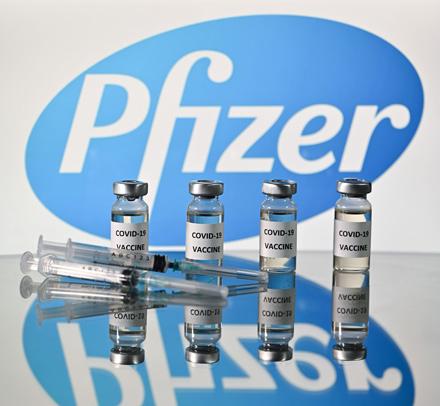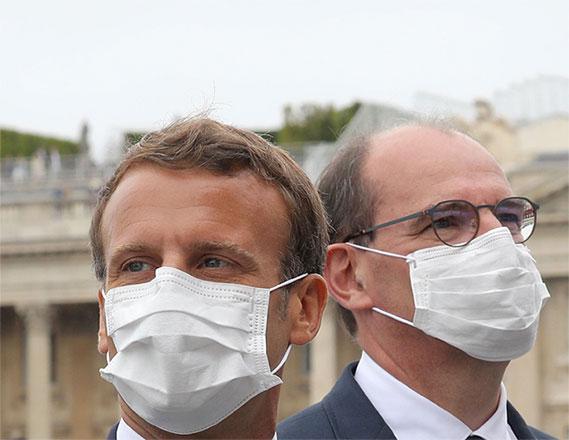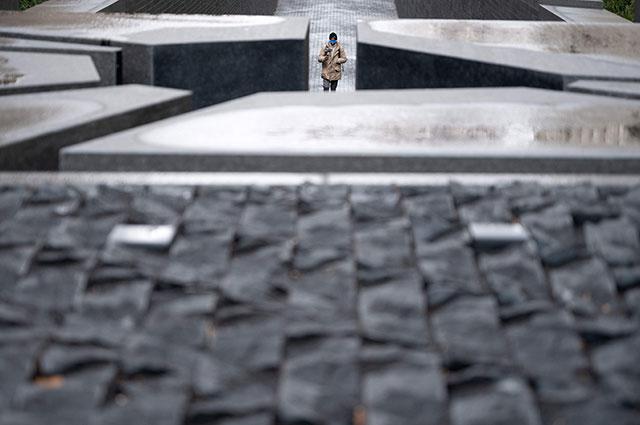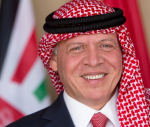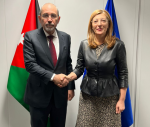You are here
EU begins vaccinations to end COVID 'nightmare'
By AFP - Dec 27,2020 - Last updated at Dec 27,2020
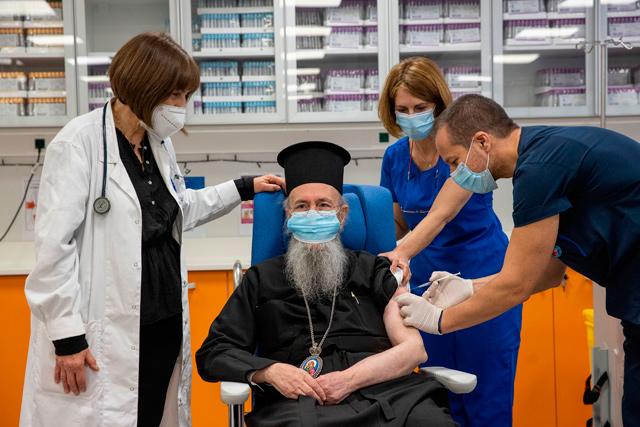
Metropolitan Hierotheos of Nafpaktos and Agios Vlasios receives a dose of the Pfizer-BioNTech COVID-19 vaccine at the Evangelismos Hospital in Athens on Sunday (AFP photo)
PARIS — EU countries on Sunday embarked on a vaccination campaign to defeat the "nightmare" of COVID-19, with the first to be immunised expressing emotion after their jab and leaders hailing a milestone in the fight against the pandemic.
The vaccine is a glimmer of hope for a continent yearning for a return to normal from a pandemic that has killed 1.76 million people worldwide since emerging in China late last year and caused at least 80 million confirmed cases, according to an AFP tally.
But polls have shown many Europeans are unwilling to take the vaccine, which could impede its effectiveness in beating the virus, while it will take months for large chunks of the population to be immunised.
"It is with deep pride and a deep sense of responsibility that I got the vaccine today. A small gesture but a fundamental gesture for all of us," said Claudia Alivernini, 29, an Italian nurse who was the first in her country to receive the Pfizer-BioNTech jab Sunday morning.
In Greece, the first in line was nurse Efstathia Kampissiouli who flashed a V-sign while being vaccinated and later told Ert TV it was "a great honour for me but also for those working on the front line".
European Commission chief Ursula von der Leyen hailed the campaign start as a “touching moment of unity and a European success story”, adding the process will “help to get our normal lives back gradually”.
Countries are however showing different strategies, with Italy focusing on health workers, France the elderly and in the Czech Republic, Greece and Slovakia political leaders at the front of the queue.
‘Felt nothing’
In a sign of impatience, some EU countries began vaccinating on Saturday, a day before the official start, with a 101-year-old woman in a care home becoming the first person in Germany to be inoculated and Hungary and Slovakia also handing out their first shots.
Araceli Rosario Hidalgo Sanchez, a 96-year-old living in a care home in central Spain became the first person in the country to be vaccinated on Sunday, in an event broadcast by national television. She said smilingly she felt “nothing” from the shot.
France began its campaign in care homes for the elderly in the Paris suburb of Seine-Saint-Denis, a low-income area hard hit by COVID-19, with a 78-year-old woman named Mauricette the first to receive the jab to applause from staff.
“We have a new weapon against the virus — the vaccine,” tweeted President Emmanuel Macron.
Swedish Prime Minister Stefan Lofven described the vaccine as a “ray of light in the darkness”. One of the first Swedes to get the vaccine, Stig Larsson, 89, said he “did not hesitate” about being inoculated.
China, Russia, Canada, the United States, Switzerland, Serbia, Singapore and Saudi Arabia have also begun their vaccination campaigns.
Britain, which last week finalised a deal on leaving the EU, began its vaccination campaign amid much fanfare on December 8, three weeks ahead of the bloc.
But it was also in Britain that a new strain of the virus emerged that has already reached several other European countries as well as Japan and Canada.
The new strain, which experts fear is more contagious, prompted more than 50 countries to impose travel restrictions on the UK.
Echoing concerns from officials across the continent, Health Minister Olivier Veran said France has not ruled out imposing a third nationwide lockdown if coronavirus cases continue to rise after the holiday season.
He said it would become clear in the next months if the vaccine did not just stop people falling sick but also from passing the virus on.
“This would allow us to leave this nightmare quicker,” he said.
‘Winning formula’
Vaccines other than the Pfizer-BioNTech jab are also in the pipeline, and the United States, where over a million people have already been vaccinated, last week began jabs with the vaccine developed by US biotech firm Moderna.
Meanwhile the University of Oxford and drug manufacturer AstraZeneca have applied to the UK authorities for permission to roll out their COVID-19 vaccine.
AstraZeneca chief executive Pascal Soriot said Sunday its vaccine was a “winning formula” and provided “100 per cent protection” against severe COVID requiring hospitalisation.
There is concern that wariness among Europeans over the vaccine could impede its effectiveness, with a poll published in the Journal du Dimanche saying 56 per cent of French people do not plan to take the jab.
China, accused of covering up the initial outbreak, has largely curbed the domestic spread of the virus. Its Communist leadership issued a statement hailing the “extremely extraordinary glory” of its handling of the crisis.
Related Articles
LONDON — Britain on Wednesday became the first country to approve a COVID-19 vaccine for general use, announcing a rollout of Pfizer-BioNTec
PARIS — French President Emmanuel Macron became the latest head of state to test positive for coronavirus on Thursday, forcing several other
BUDAPEST - Hungary on Thursday became the first European Union member to grant preliminary approval for Russia's Sputnik V coronavirus jab,


